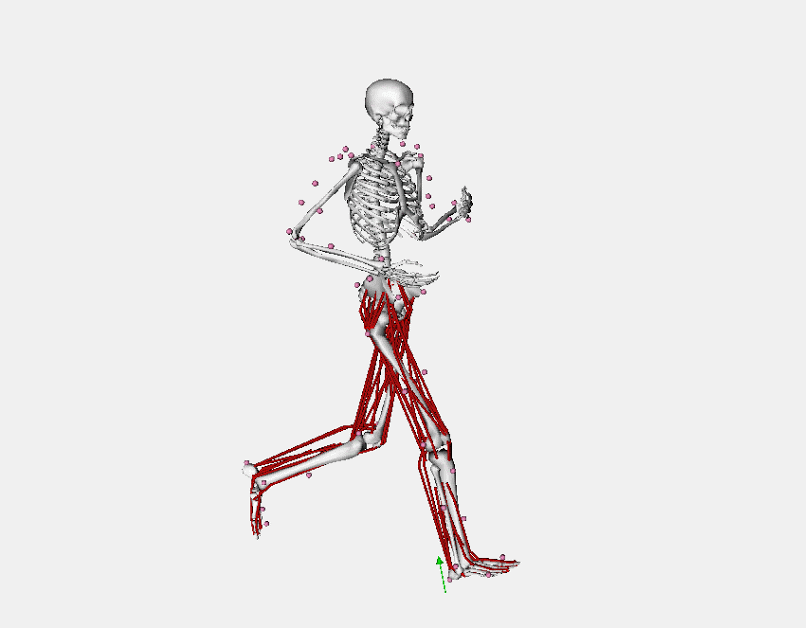Dois ótimos cursos MOOC gratuitos disponíveis na internet sobre Estatística:
Uma disciplina da Engenharia Biomédica da UFABC usa estes cursos como suporte:
fev 13
Dois ótimos cursos MOOC gratuitos disponíveis na internet sobre Estatística:
Uma disciplina da Engenharia Biomédica da UFABC usa estes cursos como suporte:
fev 13
Melhores recursos online para aprender Python:
Como rodar e instalar Python:
Nós do BMClab disponibilizamos Jupyter Notebooks (um repositório no GitHub com textos didáticos integrados com código de programação) que também podem ser utilizados para aprender como utilizar Python em Biomecânica e Controle Motor:
fev 13
Um dos melhores recursos online para aprender Biomecânica é o material criado pelo grupo de Biomecânica da Universidade de Stanford:
Nós do BMClab disponibilizamos Jupyter Notebooks (basicamente textos didáticos integrados com código de programação) sobre Biomecânica e Controle Motor que também podem ser úteis, especialmente ;para entender os cálculos:
https://www.freecodecamp.org/news/new-online-courses/
Se você ainda não ouviu, universidades de todo o mundo estão oferecendo seus cursos online gratuitamente (ou pelo menos parcialmente gratuitos). Esses cursos são chamados coletivamente de MOOCs ou Massive Open Online Courses.
fev 14
set 05
O Laboratório de Biomecânica da UFABC busca corredores de rua para realizar uma avaliação biomecânica.
Quem pode participar:
Voluntários receberão um relatório de uma avaliação biomecânica da corrida.
Mais informações em: Avaliação Biomecânica da Corrida
fev 07
jan 17
Título: Description:Open dataset and algorithm based on linear multiple regression for gait-event estimation with inertial sensors
Data: 4 de fevereiro de 2019, 14-16h.
Local: Sala 103, bloco Alpha 1, São Bernardo do Campo
jul 03
Title:
Sensorimotor improvement in chronic complete paraplegic patients after a training integrating brain-machine interfaces, visuotactile feedback and locomotion.
Speaker:
Dr. Solaiman Shokur
Date and place:
Dia 06 de Julho (sexta-feira) às 10h30min em São Bernardo do Campo. Bloco beta, auditório A003
Description:
A report from the world health organization (WHO) reveals that roughly 200’000 new cases of spinal cord injury (SCI) occur worldwide every year. SCI causes a wide array of the devastating motor, sensory, and autonomic deficits. There is currently no systematic rehabilitation approach for patients diagnosed with complete paraplegia due to SCI.
In this talk, I will present two techniques developed in our laboratory: brain-machine interfaces (direct brain-control of virtual or robotic legs) and sensory substitution. I will show, how, after a training combining these techniques, we observed unprecedented improvement rates in a group of 12 complete paraplegic patients in term of sensorimotor functions in their lower-limbs, but also, and maybe more importantly, for the control of their bladder, bowel and sexual functions.
Dr. Solaiman Shokur is an Afghan-born Swiss neuroengineer. In 2004, he obtained his master at the Polytechnique of Lausanne (Switzerland, EPFL) in computer science with a specialization in bio-inspired robotics. In 2013, he obtained his Ph.D. at the EPFL under the supervision of Prof. Bleuler (EPFL) and Prof. Miguel Nicolelis (Duke University). During this period he developed the first Virtual reality-based brain-machine interface for monkeys. His work contributed to understanding how the brain represents a new extension to the body.
Dr. Shokur is the co-author of several reference papers in the domain of Brain-machine interfaces and artificial sensory feedback, with publications in Nature, Science translational medicine, PNAS, and Scientific Reports.
He is currently the senior research coordinator of the Walk Again Project (WAP) at the AASDAP neurorehabilitation laboratory in São Paulo.